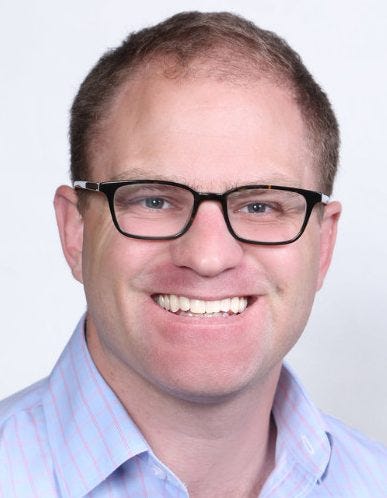Bluewave Takes $75 Million Columbia Capital Investment for Agent Acquisitions, Organic GrowthBluewave Takes $75 Million Columbia Capital Investment for Agent Acquisitions, Organic Growth
"We are building a fully integrated business, even though we're acquiring multiple companies," Seth Penland said.

Bluewave Technology Group is harnessing $75 million in capital to buy agents and build a technology advisory and life cycle management company.
Bluewave on Monday announced the growth investment, which Columbia Capital led. The transaction is one of the largest the traditional channel partner space has seen, and it sets up Bluewave as an alternative to Upstack and other investment vehicles.
Columbia, which has notably invested in systems integrator Presidio, tech solutions brokerage Telarus and cloud advisory firm Cloud Sherpas, is entering the telecom expense management and agency space after a year of closely analyzing the industry.
“We are proud to partner with Columbia Capital, who understands the opportunity and growth potential for Bluewave,” Bluewave CEO Seth Penland said.

Bluewave’s Seth Penland
Bluewave has already put the funding to use. It has acquired a total of five partner firms and currently employs between 50 and 60 people. Its customers number over 1,000. Penland said the acquisitions put Bluewave among the top 20 agencies in the U.S.
Penland said Bluewave is targeting established agencies of 10 employees or more. Moreover, he said the company hasn’t set a goal for how many partners it wants to acquire. He said the initial capital raise will support both inorganic and organic growth.
“We’re really focused on building a great premium advisory life cycle management company that is going to be here for the next 20 years,” Penland told Channel Futures. “M&A is obviously a core part of that strategy. We’re well capitalized to pursue a lot of acquisitions if we find good targets that match our strategy and fit well within our culture.”
Managed TEM Services
Penland said the consulting company will perform the normal activities of a traditional brokerage/agency. That includes vetting a customer’s technology requirements and helping them source vendors and negotiate optimal pricing.
In addition, he said Bluewave will approach the technology stack in a more “holistic” manner. He said customers need more support and guidance across the entire life cycle. Bluewave’s services include technology evaluation, expense management and operations support.
“We’re really focused on making sure we deliver peace of mind to the CIOs and IT teams that entrust us with their technology decisions,” Penland told Channel Futures.
Bluewave’s Model
Penland said Bluewave Technology Group will differ from many of its competitors in its choice not to use 1099 contractors. Penland said the company will leverage the “employee model” rather than subagents.
“All of the Bluewave folks are and will be employees of the company. So we are building a fully integrated business, even though we’re acquiring multiple companies,” he said.
Moreover, Penland said the acquired companies will embrace the same brand, platform and approach.
Some of these acquirees bring niche expertise, whether in a particular technology or market. Penland said this diversity will help Bluewave build specialized technology practices, such as networking, cloud communications and colocation. One of Bluewave’s five acquisitions was a company that provides TEM services and traditional agent sales. Another focuses on TEM consulting, and another focuses on the midmarket.
Penland said he anticipates hiring more people in customer-facing roles, in addition to making acquisitions. Those positions include consultants, account executives and solutions engineers.
He said this emphasis on organic growth contrasts with other M&A options available to agents. Furthemore, many partners seek an investment partner because they lack the resources to invest in their own growth. he noted.
“Our strategy is is 100% centered on growth. This is not a cost-savings venture,” Penland said. “Oftentimes, in a more traditional roll-up or consolidation, it’s all about this financial arbitrage of putting a lot of businesses together and reducing cost. We want to …
… accelerate the organic growth of the businesses we acquire. So instead of rationalizing the staff, we expect to add more people.”
The Agent Mindset
Penland said the companies Bluewave acquires typically fall into two buckets. One bucket is looking to retire and needs a liquidity option.
“We are here to be a good steward of those customers and also a great steward of those employees,” he said.
Other acquisition targets want to stay in their company but want to focus on what they do best.
“They really want to get back to selling and focusing on what they’re great at and stop wearing 12 different hats as a business owner,” Penland said.
These owners may elect to sell the majority of their business, roll equity into Bluewave or stay on as employees. Penland said he would love to add agent owners who want to stick around for the long term. Although he said Bluewave will likely go through multiple liquidity events or recapitalizations over the upcoming years, he said he wants to “build this business over the next 10-20 years.”
“We’d love to have people that want to be a part of that journey for the long term,” He said.
However, Penland said not all partner firms will match with Bluewave’s culture. The company is integrating the purchased companies into a unified approach, and that will require buy-in. If you started an agency because you didn’t like working for a large carrier, you might not want to become an employee of a large partner and adopt a new methodology.
“The approach that we’ve taken is to operate under one brand, one platform, one approach,” Penland said. “To me it doesn’t appear that all of the other strategies out there take that same approach. Some of them allow the seller to kind of continue to run their business. It’s a bit more of a capital injection.”
Evan DeCorte, partner at Columbia, agreed that they are building an integrated enterprise. DeCorte.said Columbia wasn’t interested in funding the “federated” agent buyouts that are occurring else where in the industry.

Columbia Capital’s Evan DeCorte
[With that approach] there’s a risk that you just end up duct taping a bunch of stuff together and hoping it holds on,” DeCorte told Channel Futures. “And we’re just not interested in doing that.”
Penland’s Background
Penland comes from the M&A side of the business. He earned his MBA from the University of Chicago in finance, accounting and entrepreneurship. He joined J.P. Morgan in 2010, working as vice president of mid-cap investment banking. He worked with primarily Western U.S.-based middle-market firms on strategic advising and capital raising activities.
A friend who owned a Texas-based agency introduced Penland to the channel. The glimpse of the industry piqued his interest.
“I was fascinated by the business model and fascinated by the value prop to the customer,” he said. Moreover, “I saw that it was a highly fragmented market that was ripe for a consolidation at some point.”
Penland started in the channel by launching Bluewave in early 2017. The firm early on functioned as a way for him to acclimate him to the industry. He acquired New Jersey-based Nationwide Communications in 2020.
At the same time, Penland was working in channel M&A. He served as managing director for Evergreen Technology Partners, which advised channel partners on M&A. For example, Bridgepointe Technologies consulted Evergreen for its acquisition of Clover Communications.
However, rapidly increasing consolidation in the channel shifted Penland’s road map. In addition to technology solutions brokerages like Telarus accepting outside investment, agent rollups like Upstack were rocking the industry.
“I realized that taking a measured, slower approach to M&A was probably not the right strategy,” Penland said. “The right approach was to go raise capital, put a great team together and really accelerate our plans around M&A.”
Penland said he spent much of the first half of 2021 building out a strategy with Columbia Capital. That first and foremost meant ensuring that …
… the investor understood the channel, Penland said.
“Once you bring in a private equity partner, they now have a lot of say in the business. They end up being the majority owner of your enterprise. So for me, it was making sure that I really trusted the individuals I was working with, that they had a really good grasp of the industry,” Penland.
Enter Columbia
He said he found such an individual in Evan DeCorte. DeCorte has worked as a partner at Columbia since 2010. Columbia focuses on companies that communications infrastructure and IT services. Moreover, it has helped develop multiple big-name channel partners over the years. For example, Columbia poured $20 million into Google Cloud and Salesforce partner Cloud Sherpas in 2012. Columbia and its group of investors sold Cloud Sherpas to Accenture for what many estimated to be more than $350 million.
Recently Columbia has ventured into the traditional agent/brokerage channel. Utah-based TSB Telarus accepted a growth equity investment from Columbia in late 2020.
“They have an overall very bullish point of view of the channel,” Penland said. “I think they saw that there was an opportunity to place more than one bet in that thesis. One is to invest at the technology distributor level. And the other option would be to invest in a direct-selling business model that is close to the end customer.”
DeCorte emphasized in an interview with Channel Futures that Columbia’s minority shareholder status of Telarus did not factor into the Bluewave investment.
“These are fundamentally different businesses with different teams and different ownership structures,” DeCorte said. “I think there’s a temptation to think about them as just an extension of Columbia, but they’re not.”
If anything, the investment represents Columbia’s confidence in the value chain that is the channel, DeCorte said. He said the TSB model differs widely from the consultative procurement layer of the channel. While the TSB focuses on partner enablement, a company like Bluewave focuses on the needs of the end customer.
“We see this as an opportunity to double down in a space we really like and a sector we really understand,” he said.
In addition, DeCorte told Channel Futures that Bluewave Technology Group will transact through a wide variety of TSB partners. Moreover, a Bluewave spokesperson emphasized that the majority of the company’s sales have gone through TSBs other than Telarus.
Distributor and Vendor Relationships
Penland said the firm might occasionally sign a direct contract with a vendor in circumstances that make sense. However, it will predominantly leverage technology solutions brokerages (formerly known as master agents). Penland said Bluewave gets value from its TSB partners.
“We think they provide a lot of value around contract protections, access to resources, administrative work around commissions and disputes, and help from a technical perspective,” he said.
The Future
Penland predicted that M&A in the channel still stay active and result in the formation of a handful of large customer-facing partner organizations.
“I think you’re going to see three to five players emerge that will have more scale, more scope and more presence across the country, and ultimately deliver more of the value proposition that customers are looking for,” he said.
On the other hand, he predicted that smaller partner firms will face more and more barriers to growth.
“I think it’s going to get harder and harder to compete as a small agency that doesn’t have the breadth of solutions or services that a larger player will provide,” he said.
Want to contact the author directly about this story? Have ideas for a follow-up article? Email James Anderson or connect with him on LinkedIn. |
Read more about:
AgentsAbout the Author
You May Also Like


